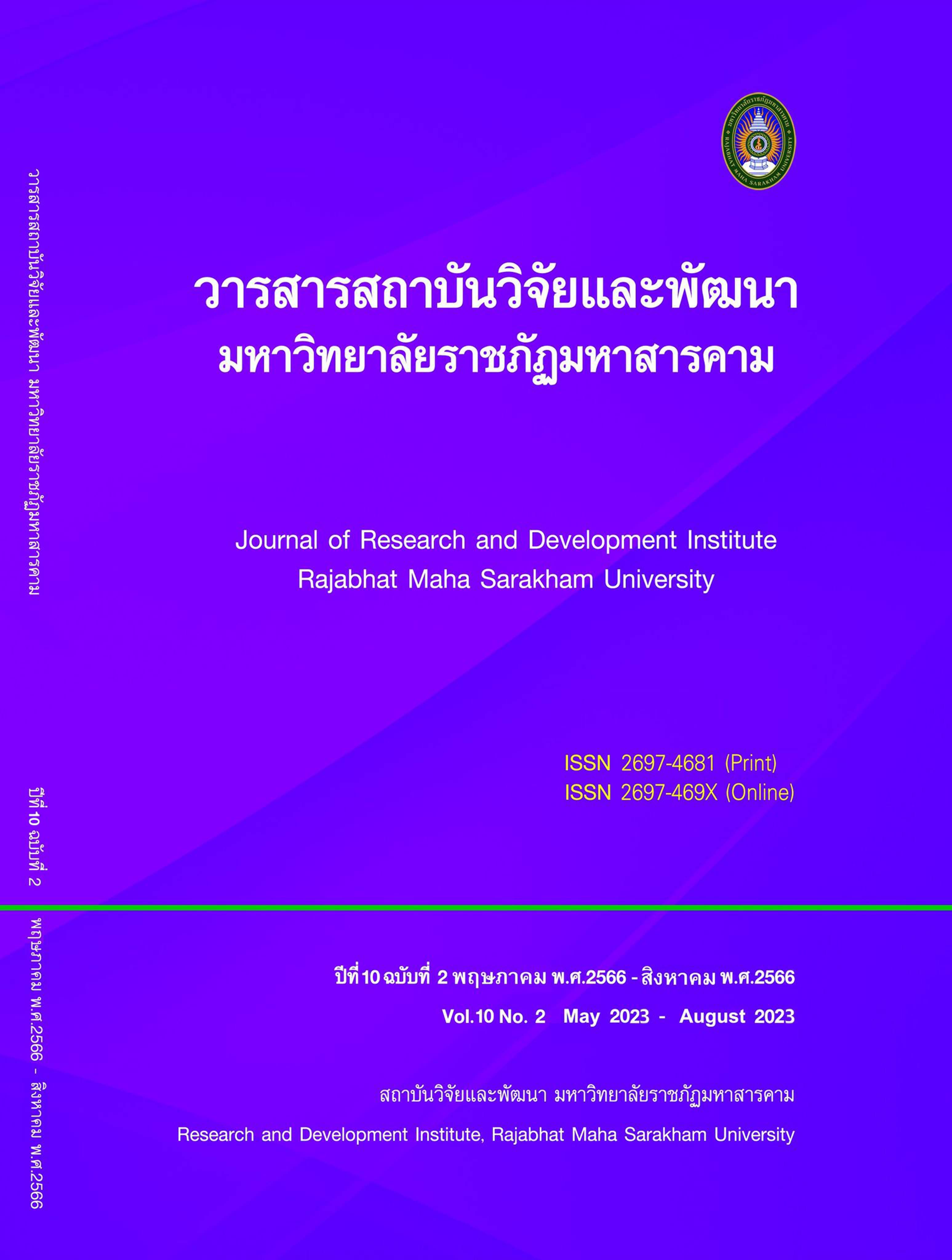Social Capital and Development Dimension
Keywords:
Social Capital, Development Dimension, Community DevelopmentAbstract
Social capital is a concept that is wildly mentioned in post-modern era. The development in the past period flourished in term of economic, industry and market system. Nonetheless, it affected economic, society, and environment of small countries which resulted in a late progress of human living. This makes post-modern era to develop social concept to be a part of development and that is social capital.
Social capital is a pattern of human relationship in daily life such as building good image, making friendship, interaction for sharing knowledge of individuals and forming various social activities. Social capital refers to trustworthiness that creates social network by connecting members to institute network. Such network includes trustworthy and social exchange norm which is a strong social network linking to other concept such as cultural capital. Even the concept of community economic is called cultural economic because most economic activities are based on culture, community culture, or Thai local culture. Moreover, economic activities are not separated from culture, especially community economic in Thai villages. If social capital is viewed as a development dimension, it is described that social capital is based on the concept of capital. Capital is a word in daily life covering natural resources, social relationship from family to friends and other career groups in a society. In addition, it is possible to fundraising in economic by aspects of groups and networks, trustworthiness, unity, activities, and cooperation.
References
Coleman, J. S. (2000). Social capital in the creation of human capital, LESSER, ERICL, Knowledge and social capital. Boston: Butterworth Heinemann.
Hanifan, L. J. (1920). Cited in Woolcock, M. and Narayan, D. Social Capital: Implications for Development Theory, Research, and Policy. World Bank Research Obserer, 15 (2) : 225-249.
Havanon, N. and Rattanarotsakul, P. (2005). Research results on strengthening social capital for strong communities. Bangkok: Office of the National Economic and Social Committee.
Havanon, N. and Rattanarotsakul, P. (2007). Foundational theory on community strength. Bangkok: Thailand Research Fund.
Natsupa, C. (2003). Foreword by the head of the community economic research project. In Suwit Teerasasawat, (Editor). Economic History of Isan Village Community. Bangkok : Creative Publishing.
Prompakping, B. (2013). Concepts and theories of development: from material wealth to national well-being. Khon Kaen : Khon Kaen University Printing House.
Putnam, R. (2000). Bowling alone : The collapse and revival of American Community. New York : Simon and Schuster.
Romratanaphan, W. (2005). Social Capital. Bangkok : Duan October Printing House.
Rostow, W. W. (1960). The stages of economic growth: A non-communist Manifesto. Cambridge : Cambridge University Press.
Ruangudom, N. (2011). The relationship between self-reliance and social capital of the Khlong Lat Mayom Floating Market Community, Bang Ramat Subdistrict, Taling Chan District, Bangkok. Nakhon Pathom : Silpakorn University.
Soonthornmeesathien, N. (2009). Social Capital and Community Enterprise Management: A Case Study of Bang Son Sub-district Community Enterprise, Hua Non Village, Bang Son Sub-district, Pathio District, Chumphon Province. Bangkok: Thammasat University.
Srisuphan, P. (2004). Social capital discourse: concept formation and action process. in the Thai development context (1997 - 2003). Bangkok: Chulalongkorn University.
Wasi, P. (1998). National strategy. for economic strength Society and morality. Bangkok: Mo Ban Publishing House.
Downloads
Published
How to Cite
Issue
Section
License
Copyright (c) 2023 วรพจน์ พรหมจักร, ณมน ธนินธญางกูร

This work is licensed under a Creative Commons Attribution-NonCommercial-NoDerivatives 4.0 International License.
Articles that are published are copyrighted by the authors of the articles







